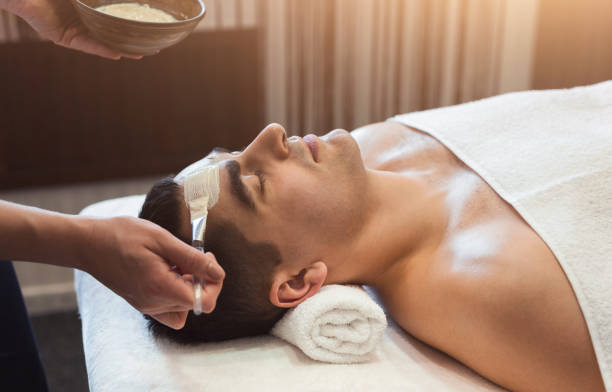For a radiant face with healthy skin into old age, individual care is required. However, one of the biggest mistakes in facial care is using the wrong products. A skin type analysis creates clarity and allows the selection of the optimal care products. We summarize how you can determine your skin type and find the right facial care.
Face care with the measure
What your skin needs depends on several factors. Age, your genetic skin type, and individual habits in the care routine play a role. For example, if you are constantly changing your face cream and are one of those people who like to regularly test new care products, this can stress your skin in the long run. This stress can lead to blemishes being specifically promoted and over-stimulation occurring. Skin that has been overstressed for a long time becomes more sensitive – redness, feelings of tightness, and itching are typical consequences.

Choose the right cream for your facial care
The choice of face cream must be made particularly care if the skin is irritated. The cosmetics company asambeauty with the M. Asam brand, which has existed since 1963, develops successful recipes in cooperation with renowned dermatologists and recommends mild and fragrance-free formulations with selected and gentle ingredients for sensitive skin. As a suitable face cream from the M. Asam brand, the manufacturer recommends the perfume-free Hyaluron Repair 24h Cream, which strengthens the natural skin protection barrier and gives the facial skin new resistance. The texture of the cream is described as velvety and it should be applied in the morning and evening after cleansing the face.
Face cream types for different skin types
Yes, there are different types of face cream for different skin types. In general, a distinction is made between oily, dry, and normal skin as well as so-called combination skin for the right facial care:
Normal skin
This skin type does not suffer from particularly dry or oily skin. Pimples are also rather rare. Care is easy here with daily facial cleansing and a moisturizer.
Oily skin
Excessive sebum production leads to oily facial skin. The cause for this can be genes and hormone fluctuations as well as inferior cosmetic products and stress. Typical signs of oily skin are shine all over the face and enlarged pores. Wrinkles are less noticeable. Blemishes are possible, but not a must for this skin type. With oily skin, the mistake is often made when drying care products are used. But that is exactly what can contribute to an additional boost to sebum production and worsen the complexion. Substances such as menthol and eucalyptus are unfavorable.
Proper care should be based on a thorough cleaning and the additional use of a facial tonic. A serum or gel is recommended for light care. Vogue has interviewed dermatologist Dr. Elena Martínez and asked about proper skincare for oily skin. The expert advises using a sebum-regulating serum in the morning in combination with a water-based moisturizing cream. For the night, however, care products with glycolic acid, salicylic acid, or retinol are advantageous.
Dry/dehydrated skin
If the facial skin feels mainly dry, and tense and is often characterized by irritation, there is a lack of natural fats, and sebum production is restricted. Flaky areas of skin are also conceivable. Care products that also dry out and irritate the skin should be avoided. Ingredients such as perfume, alcohol, and mineral oils should be taboo. Substances such as almond oil, ceramides, and shea butter are advisable instead. After mild facial cleansing, a moisturizing face cream is applied.
Combination skin
This is where greasy and dry spots mix. While the area around the nose and forehead (the T-zone) often tends to be greasy, the cheeks appear dry. Care is a bit more complex here because the products have to meet the different requirements. A pH-neutral facial cleansing gel and tonic make a good combination. A face cream especially for combination skin completes the care. Products with hyaluronic acid and gel-like texture are optimal.
If in doubt, consult an expert

However, the classification of the skin is often not quite as simple as this classic categorization would make it out to be. The problem: Just because your skin looks oily doesn’t mean that facial care for oily skin is right for you. It is not uncommon for different characteristics of skin types to mix with signs of a skin disease that has not yet been diagnosed.
In addition, skin that suffers from a lack of moisture can also be oily, at least temporarily. Drinking too little also damages the organ and promotes dry skin. If you interpret the signals incorrectly and therefore use unfavorable care, this can lead to the overstimulation mentioned above in the long run. If in doubt, a visit to a dermatologist is helpful to have an individual analysis carried out and to determine the appropriate care without a doubt.
